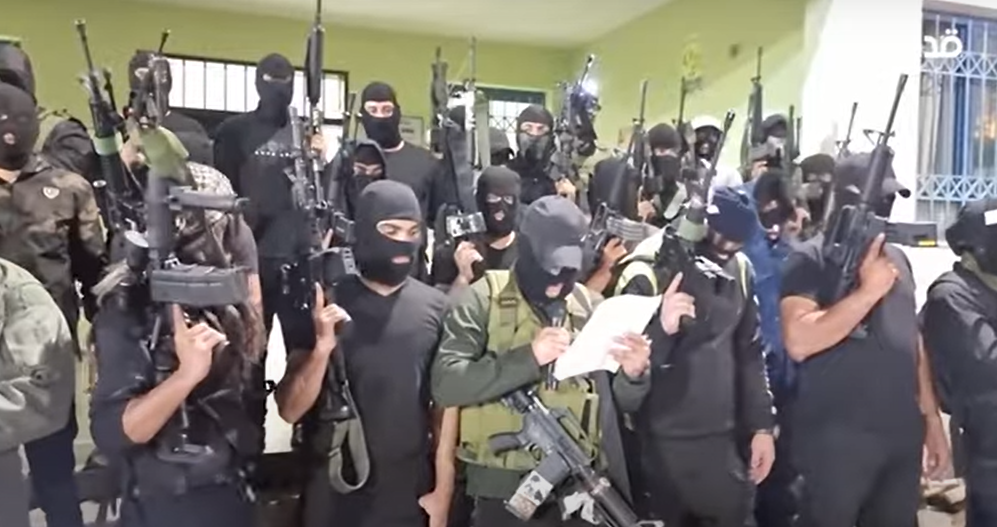The struggle for control between the PA security forces and the armed group known as the “Jenin Battalion,” affiliated with the Islamic Jihad, has commenced.
In coordination with the IDF, the PA deployed approximately 600 security personnel in the city of Jenin and initiated arrests of “Jenin Battalion” activists from the Fatah movement and the Islamic Jihad. Furthermore, several activists who attacked the PA’s police station were arrested in the village of Jaba in the Jenin area, where it was subsequently burned.
Akram Rajoub, the governor of Jenin, stated last night that this group consists of lawbreakers, and the PA’s security mechanisms are dutifully and professionally executing their responsibilities in accordance with the law.
Last night, protest marches took place in various Palestinian cities in Judea and Samaria, as well as in the Gaza Strip, against the PA’s arrests of “Jenin Battalion” activists and the political arrests of Palestinian opposition members.
PA security forces were deployed in several cities to maintain public order.
In the Jenin refugee camp, a large procession of dozens of armed terrorists from the “Jenin Battalion” took place last night to protest the arrests.
They refrained from entering the city of Jenin, where the PA security forces were stationed.
Some of the armed terrorists referred to the PA security forces as “a dagger stuck in the back of the resistance.”
Hader Habib, a senior Islamic Jihad leader, criticized the arrests made by the PA in Jenin and the pursuit of wanted individuals, emphasizing that such actions indicate the PA’s continued security coordination with Israel. He called on the PA’s security forces to cease this cooperation.
Security officials in Israel appreciate the PA’s efforts against the armed terrorists but view the current arrests as a minor step.
They believe that the primary objective should be disarming the “Jenin Battalion.”
According to them, the PA has avoided arresting terrorists who have targeted IDF forces and settlers, instead focusing on a few individuals who acted against the PA.
Therefore, the real challenge in the fight against terrorism in the Jenin area lies ahead.
The “Al-Aqsa Martyrs Battalions,” a terrorist group affiliated with the Fatah movement in the Tulkarm area, expressed solidarity with the “Jenin Battalion” and urged the PA security forces to reconsider their actions and cease the arrests of wanted terrorists.
The primary claim made by the “Jenin Battalion” against the PA is that the agreement between them and the armed terrorists has been violated.
Sources within the Fatah movement in Jenin allege that an agreement was reached, stipulating that the armed groups would allow PA Chairman Mahmoud Abbas to visit Jenin without disturbances in exchange for the release of all Islamic Jihad detainees. However, the PA refuses to honor the agreement.
Ziad Al-Nakhallah, the leader of the Islamic Jihad, threatens that his organization will not participate in the reconciliation meeting initiated by PA Chairman Mahmoud Abbas in Cairo at the end of the month unless all detainees are released.
PA officials emphasize the significance of the meeting in Cairo and their intention to present a solution to the issue of the hundreds of armed individuals in the Jenin area, with the goal of achieving disarmament without bloodshed.
The PA demands that these individuals surrender their weapons and is prepared to absorb a significant portion of them into its security mechanisms.
In the second phase, Mahmoud Abbas intends to negotiate with Israel for amnesty for all terrorists in the Jenin area who have carried out attacks, on the condition that they cease their attacks on IDF soldiers and settlers.
Hamas sources state that both the Islamic Jihad and Hamas will refuse to disarm the armed groups in Jenin.
They consider the proposal put forth by the PA Chairman as impractical and warn that it may lead to violent clashes between militants and PA security forces in the Jenin area, ultimately harming national unity.
Iran also opposes any arrangement with the PA, as they have no intention of abandoning their gains in the past two years, during which they have established armed outposts through the Islamic Jihad in northern Samaria.
Soon, weapons and substantial funds are expected to flow into the Jenin area, following visits by leaders of Hamas and the Islamic Jihad to Tehran approximately a month ago, in order to strengthen the terrorist groups‘ activities against Israel.
PA Chairman Mahmoud Abbas is confronted with a major security challenge that will test his ability to govern the Jenin region and restore the PA’s security control.
This situation also has direct implications for future developments in the Nablus and Tulkarm areas.
The PA regards Jenin as a model, and its success there will likely determine whether similar strategies will be implemented in other parts of northern Samaria.
The extent of determination demonstrated by PA Chairman Mahmoud Abbas will shape the course of events on the ground. If he yields and abandons his current plans, it will be interpreted as a sign of weakness by armed terrorist groups, who will exploit this situation to exert more pressure on the PA and force its security forces out of the city of Jenin once again.
According to orders from the political leadership, the IDF has refrained from entering the city of Jenin, allowing the PA security forces to carry out the arrests of wanted individuals.
However, if terrorist attacks resume, the IDF will have no choice but to enter the city and its refugee camp to counteract the terrorism. The security situation in Jenin remains highly fragile.




